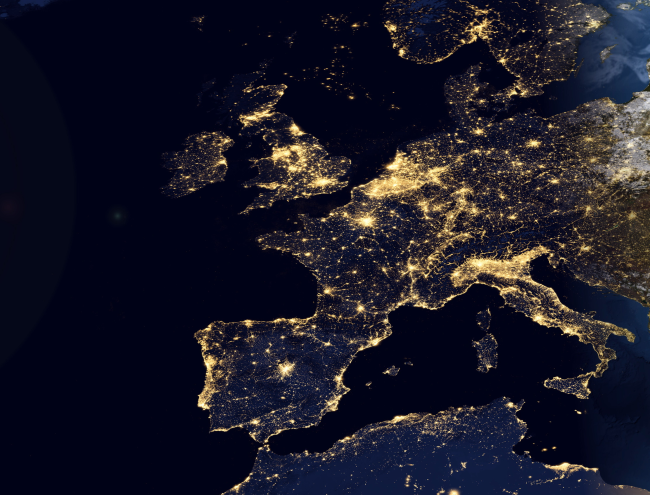Russian Gas Diplomacy

Thank goodness our early warning systems during the cold war were not structured so we could see the flash at the same time we heard the warning. On Monday, the Russians notified the Europeans under an “Early Warning” agreement negotiated after the last Ukrainian gas cutoff that they had already cut gas flows to Belarus by 15% and that would increase cuts to 85% by the end of the week. Not very good news for the Belarusians who enjoy the most gasified economy in the world - everything there runs on gas.
It was good of Gazprom to choose the first days of summer for this commercial dispute as European gas demand is off seasonally, demand recovery is slow and stocks are high - except of course in Poland and Lithuania (downstream from Belarus) where gas stocks as a percentage of import dependency are very low. The situation is even more difficult for Russia’s own exclave Kaliningrad.
The Russian expressed a willingness to dispatch monitors to attest to flows of gas to Europe being available at the Russian border should President Lukashenka make good on his threat to cut transit gas to Europe. Furthermore, the Russians suggest helpfully that the Europeans might want to establish an arbitration mechanism between Russia and Belarus?!
Somehow the Russians see themselves as having met their obligations to be responsible suppliers by notifying the Commission of a cutoff after the fact and suggesting Europe take upon itself the political responsibility of finding a solution. The Commission missed an opportunity at 09h00 Monday morning to reject the Russian “Early Warning” as totally unacceptable. Will the next early warning comes one frigid day in January when companies would be stretched to adjust?
Russia has entered into contracts to supply gas to Europe. They have on two major occasions disrupted supplies to Europe as a result of geopolitical and/or commercial disagreements with their “near abroad”. Many thought they would have recognized how much damage this kind of action has already done to their reputation as reliable suppliers. How much of the European impulse to diversify gas supplies is driven by this behavior?
Europe has been more than patient sorting through past Russian gas supply incidents and the policy measures undertaken in the EU to lower European vulnerability to Russian gas diplomacy are progressing. But an “Early Warning System” with Russia that shifts the responsibility of dealing with the consequences to Europe after the fact and that turns to Europe to negotiate a settlement doesn’t appear to be a very good solution.
We learn today that the issue has been “resolved” in the traditional non-transparent way. Perhaps this latest incident can provide an incentive for Europe to restore the burden of responsibility for gas deliveries to Europe back to the supplier who agreed to do so.

Available in:
Regions and themes
Share
Related centers and programs
Discover our other research centers and programsFind out more
Discover all our analysesBrazil One Year Away from the October 2026 General Elections
Brazil’s general elections will be held on October 4, 2026, to elect the president, vice-president, members of the National Congress, governors, deputy governors and state legislative assemblies. For the presidential and gubernatorial elections, a second round will be held on October 25 if no candidate obtains a majority of the votes in the first round.
COP30: An Inflection Point for Climate Action and Governance
The 30th Conference of the Parties (COP30), opening in Belém, Brazil, on November 10th 2025, convenes at a perilous moment.
The Strategic Dimension of Skills in the Clean Industrial Deal
In the competitiveness and energy transition battles, the European Union (EU) must master a determinant factor: skills.
The Energy Transition Faces Geopolitical Challenges. How Can Ideological Divides Be Overcome?
President Trump’s positions and policies, combined with record coal consumption and booming global electricity demand, geo-economic confrontation, and widespread concerns about energy security, are changing the game when it comes to understanding realistic decarbonization trajectories. The war in Europe is intensifying competition between defense and transition budgets. This is also the case elsewhere in the world.













